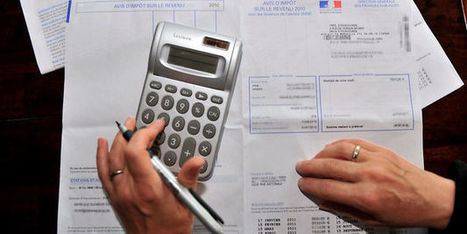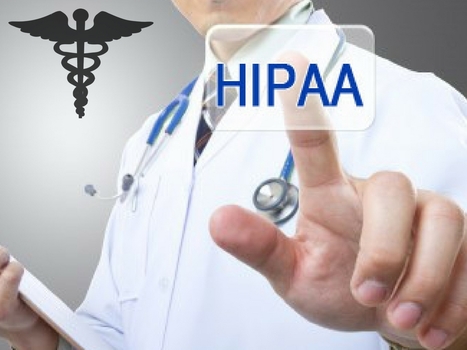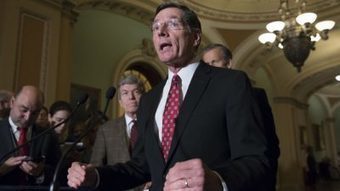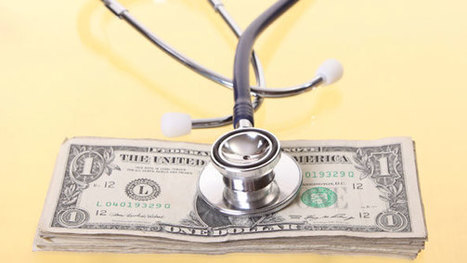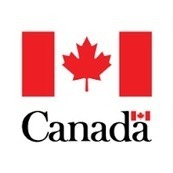As technology advances and legislation changes, HIPAA email compliance can seem like a constantly moving target. With the challenges facing today’s healthcare landscape, including the proliferation of electronic health records (EHRs) and health information exchanges (HIEs), hackers and “hacktivists” targeting hospitals and the adoption of mobile technology in healthcare, HIPAA compliance is becoming more challenging — and more important — than ever.
Much has changed since 1996, when the Health Insurance Portability and Accountability Act (HIPAA) was signed into law. The World Wide Web was still relatively new, mobile phones were relatively rare (and great for your biceps!) and your health data was divided into thick manila folders stuffed with paperwork. Now, all that stands between patients and the entirety of their medical histories is a username and a password, and a startling number of those passwords is “password.”
The Challenge of Protecting Patient Data
When most of us think about HIPAA compliance, we think about its access control aspect — that is, who gets access to protected health information (PHI), and when. A leak of PHI can be as simple as a medical professional forgetting to log out of their portal, and leaving patient data open on the desktop to be viewed by anyone walking by (this is why automatic logout is one of the “technical safeguards” required to maintain HIPAA compliance).
When it comes to protecting PHI, the penalties add up fast — and since the passing of the 2009 Recovery Act, violating HIPAA has only grown more expensive. Each individual violation will run your business anywhere from$100 to $50,000, if it’s a first offence (and a lack of due diligence, as opposed to wilful neglect). Violations due to wilful neglect, however, cost a covered entity a minimum of $50,000 per violation. And when you consider how many patients have their data stored on a single server, those $50,000 violations stack up fast.
Doctors, hospital administrators, insurance professionals and anyone who deals with PHI need to be aware of the growing threats to patient privacy and be proactive with their information security. Here are six ways to lock down patient data and stay ahead of the threat.
1. Use strong data encryption.
Any PHI data you’re storing, whether it be on your desktop, on a server, should be encrypted. Encryption obscures your data, making it unintelligible to anyone who doesn’t have the key to decry-pt it. As proven by the 2014 CHS Heart-bleed attack, which resulted in the theft of 4.5 million social security numbers from one of the largest hospital groups in the United States, cyber-criminals have both the desire and the means to crack into hospital servers and steal sensitive data. With encryption, that data is still protected even after hackers get their hands on it, provided they weren’t able to also steal the encryption key.Data encryption isn’t just best practice for information security, though — it’s a written requirement to maintain HIPAA compliance. Established in 2009, the HIPAA Breach Notification Rule gives businesses 60 days to notify all parties who may be affected by a leak of “unsecured protected health information.” Here, “unsecured” is another way of saying “unencrypted.”The HHS actually goes into detail about its encryption standards for data at rest and data in motion. For data at rest (data that sits in storage), for example, the HHS’ standards are consistent with those of the National Institute of Standards and Technology (NIST), and include centrally managing all storage encryption, using multi-factor authentication for encryption solutions and using the Advanced Encryption Standard (AES) for encryption algorithms.
2. Encrypt your emails, as well.
A tremendous amount of PHI is exchanged over email, and HIPAA compliant email requires encryption, too. In a post-HI-TECH (Health Information Technology for Economic and Clinical Health) world, the data shared digitally between doctors and their patients can be extremely useful for enterprising hackers, and email is a particularly vulnerable vector of attack.The traditional route hospitals and providers take for HIPAA compliant email is a portal solution that uses Transport Layer Security (TLS) to encrypt messages. While these legacy portal solutions do provide for HIPAA email compliance, they are certainly not easy for either the providers or patients who use them. Web mail portals tend to be inconvenient to use, requiring separate usernames and passwords for each and every system and creating information silos for medical information.Newer email encryption solutions bypass the annoyance of email portals by integrating seamlessly with more popular email services, like Gmail. Virtue Pro, for example, works with the service you’re already using to provide client-side encryption for HIPAA compliant email. In this case, encrypted PHI can be delivered safely and securely directly to the inbox, with no need for separate accounts or credentials. This allows for both HIPAA compliant email and convenience. (To learn more, read our FAQ about how Virtue Pro enables HI-TECH and HIPAA compliance for Gmail, or download our free guide)
3. Use multi-factor authentication wherever possible.
If a hacker steals your password, can they access your data? If you’re using multi-factor authentication, you may still be safe. Without multi-factor authentication, your password is a single point of failure, the only gatekeeper separating you from the data thieves.To help satisfy the Person or Entity Authentication component of HIPAA compliance, the HHS recommends that businesses handling PHI require, in addition to a password or PIN, either something the individual possesses (like a token or smart card) or a bio-metric (for example, a fingerprint or iris scan) for identity verification. These are both examples of multi-factor authentication, which requires a combination of something a user knows with something a user has.Anyone who has used a debit card is familiar with multi-factor authentication. Even if someone gets a hold of your card, that person can’t withdraw money at an ATM without your PIN. Requiring two separate steps to verify your identity makes it doubly hard for someone to gain access to your money (or your data) by posing as you.
4. Make all of your employees HIPAA compliance experts.
One of the standards HIPAA lists among its Administrative Safeguards is Security and Awareness Training. Any business is only as secure as its least vigilant employee. All it takes is one tired worker uploading notes to their personal server, or leaving handwritten passwords in open spaces, to violate HIPAA compliance laws. It’s essential to make sure that every employee is thoroughly trained and refreshed in HIPAA and HI TECH regulations, as well as your company’s security policies.While many of the technical safeguards that protect HIPAA compliance are automated, like timed session logouts and password complexity requirements, nothing can replace thorough training and adequate knowledge sharing when it comes to strengthening your security posture.
5. Review the compliance and security practices of business associates.
When it comes to HIPAA compliance, you can’t just tidy up shop internally. As with its employees, a company is also only as compliant as its least secure partner/vendor/contractor, and every business your hospital, private practice or insurance company partners with is a potential vector for attack or HIPAA violation.There are a few precautions any HIPAA-covered entity should take when it enters into a business associate agreement, including securing the right to audit the associate for compliance. Lay down ground rules for HIPAA compliance best practices, including a mutual obligation to encrypt any shared PHI, and ensure that your business associate can’t pass PHI from your patients on to subcontractors without your approval. This includes using only HIPAA compliant email to exchange PHI.
6. Be aware of social engineering and inside threats.
While usually, the leak of PHI is simply an act of user error or negligence, many data leaks are caused by malice — both from the outside and within. While many info-sec efforts are directed at the stereotypical hacker, hiding in the shadows in a musty basement cracking into a distant server, 28 percent of security incidents come from within the organisation, and 66 percent of malicious hacks are acts of social engineering, a method of intrusion that relies on social manipulation.Social engineering can be as simple as someone walking into a hospital dressed like a convincing repair person, sneaking in a thumb drive and leaving with sensitive PHI. Make sure your internal security audits address these scenarios, as well as insider data threats.
Between legislation and technological advances, healthcare in the United States has recently undergone a dramatic transformation. It’s vital that healthcare providers and other covered entities keep pace with these changes. While it isn’t necessary to be an info-sec expert or a white hat hacker, doctors, nurses and administrators should know the law, know the threats and keep vigilant to protect the privacy of their patients and the HIPAA compliance of their practices.



 Your new post is loading...
Your new post is loading...











